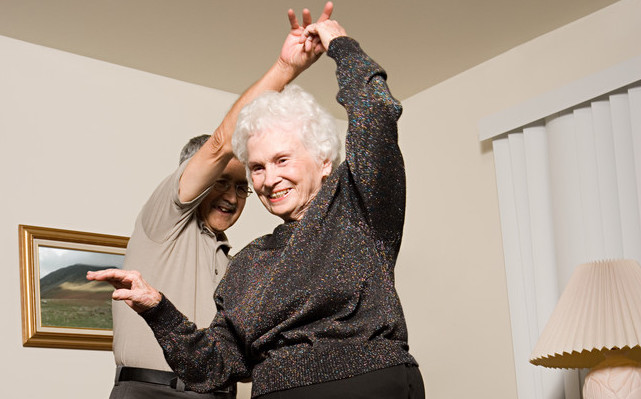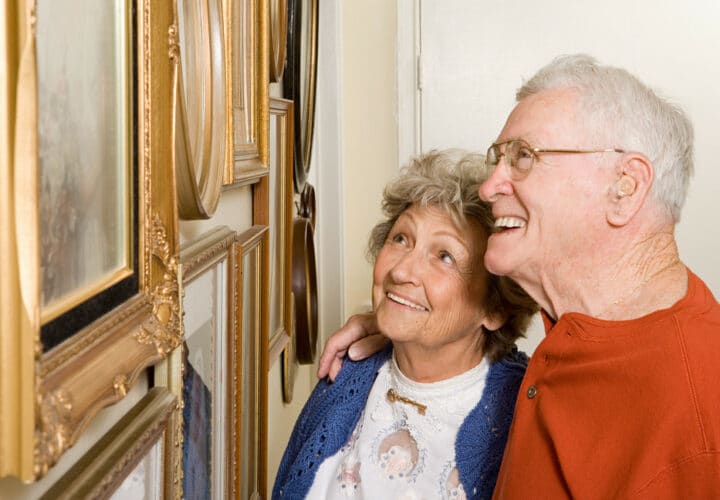Jason Prall, director of The Longevity Project, traveled to nine countries and three continents, interviewing some of the world’s healthiest centenarians. Prall explored what it takes to live past 100 years old and whether it’s possible to reach that age while maintaining peak health. He studied how their lifestyle, environment and mindset increases longevity.
- The healthiest centenarians lived simple lives, following farm-to-table diets, frequently interacting with their communities and exercising by biking or walking long distances to work each day
- Populations with healthy centenarians do not appear to have many of the chronic conditions seen in Western culture. These conditions have only appeared recently, as Western influences like fast food and new technologies crept into their communities, said Prall
Being Patient spoke to Prall about his travels, research and the secrets to living beyond 100 years old while remaining healthy.
Being Patient: Is it possible to live to be 100 years old or beyond and be happy and healthy?
Jason Prall: I think it’s definitely possible to be happy, but healthy is however we want to qualitatively define that. I think we have to come to grips with the fact that we are mortal, that life is a journey and part of growing older involves losing function. This is what we inevitably saw with the people that we spoke with around the world. Even people that were beyond 100 and “healthy” still had a decline. One of my favorite people that we talked to in Italy was a guy named Giulio, who was 104 years old and still able to ride a bike. To me, that’s remarkable and to see him do it, I was just stunned, but he moved slowly and his hearing was starting to go, along with his teeth.
You can be 24 years old and in theory, be healthy, but not happy, and the opposite is true. You can be kicking the bucket and happier than ever. I think we have to separate the two to some degree.
Being Patient: You traveled to various locations around the world and interviewed centenarians. What did they have in common?
Jason Prall: There’s a number of things that they all shared. I think what really stuck out to me in a blanket statement is that they all lived a simple life. They moved with the rhythms of nature, were in close connection with their community, each other and their family. They did not get overwhelmed with life and what was going on around them. Meaning was a huge part of their life. Meaning in everyday things, not big things. They didn’t have to have this Elon Musk, Steve Jobs or Oprah Winfrey type of reality to be happy and to have meaning. They had meaning all around them. Meaning was a choice. Their food was simple. Their movement and exercise patterns were simple. Everything around their whole life was simple. The more modernized we get, it seems the more complexity we add to our life. I think our challenge now in the Western world is to decomplexify: to reduce the clutter in our minds, our spaces and our foods. Everything that we’re doing, we have to strip away to some degree. Looking at that general, archetypal theme of simplicity, that seemed to be the thing that bred happiness and a sense of real meaning and belonging in the world.
Being Patient: Do you think simplicity equals less worries, and therefore, less stress? Looking at people who live simplistic lives versus people who live in big cities with a lot of hustle and bustle, as well as technology, how do you draw parallels there?
Jason Prall: They don’t always correlate. We can have someone who lives a simple life who is completely unhappy, lacks meaning and can’t figure things out. We can have someone who has a really complex life and is really dialed in with a life of meaning and connection. They don’t always correlate, but the simplicity seemed to be a better starting point because these people 50 years ago didn’t have electricity, so it’s not like simplicity was a choice; that’s just the way things were. Because their lives were based around necessities and they needed connection and each other, a lot of their lives and the things that provided meaning were required to some degree. Now, it’s almost optional in terms of our survival. The simple life, the historical context in which they lived gave them a more likely opportunity to live a life that was centered around the absolute necessities.
Some of these people grew up in times where the government was giving them food because there was no food. There was armistice and they were living on scraps. One guy told me when he was 14 years old, he was 40 pounds. He was frail and there was nothing left because there was a war going on and he lived on an island. There wasn’t opportunity. Imagine yourself going on a fast and taking a break from food for seven days. All of a sudden, broccoli makes your mouth water.
When you strip things away, the simple things in life seem to have so much meaning. A glass of water or just a bite of food has that much more magic to it. I think as we take away the excesses, the things that we really, really require, that we really value, start to show up, and we recognize those things.
Being Patient: When you talk about simplicity, does that relate to diet? How much did you find that diet related to longevity?
Jason Prall: I think that’s a huge part of it. I know it’s one that we all want to go to because food is such a meaningful part of our lives. It can’t get any more basic than food. But undoubtedly, it’s playing a huge role, though how much is very difficult to say. The human body is quite amazing to be able to deal with the Coca-Cola and Doritos. The food they were eating was backyard garden-to-table, and oftentimes, backyard garden-to-mouth. I think it played a huge role in not only the physical health of the body, but also, in the community. You cooked with the family. Exchanging it with others, there was a communal aspect, whereas now, the social aspect of food is really starting to fall apart with food delivery options and all these things. Food is inevitably a culturally important topic, not only for physical health, but also mental, social, psychospiritual and emotional. It’s where we can connect with one another.
Being Patient: Can you offer examples of some of the most memorable conversations you had with a few centenarians? What part of the world did they live in and what did you learn from these conversations?
Jason Prall: One that stands out immediately was chatting with a gentleman in Ikaria, Greece. He was telling me a story about the village that he lived in. He was walking to work, and on his way to work, he saw a friend. They sat down and started chatting. And then another friend came up and he started chatting with them. And then before they knew it, they were sitting there all day drinking wine, about eight of them drinking bottles and bottles of wine, and none of them went to work. This wasn’t a thing where you had to call your boss and you skipped out, no, this was what’s important to them. They walked to work and saw a friend that they hadn’t seen in a while and decided they wanted to chat. That was their life. It was this type of mentality. Yes, there were jobs to be done, there were things to do around the village, but the most important thing to do was to live life and their relationships.
Another one that stands out is in the mountain region of Sardinia, Italy. They have a lot of shepherds, so they’re sheep herding and doing all this stuff. One guy told me how he would walk 40–50 kilometers per day to get the sheep from one area to another and oftentimes, he’d have to walk back. These people were moving and walking, and along the way, he’d drink out of the streams, the mountain streams. He was 98 years old and he credits a lot of his health to the amazing water that they have in the mountain areas of Sardinia.
We have a lot of luxury in our world. There’s a lot of these types of stories, but they were all centered around what I would frame as real-life experience. Not to say that our life is bad here with computers, but it wasn’t this artificial interaction. There’s a lot of good stuff that comes out of this. Live talks online are a great example of the Internet and what we can do here, but there was something meaningful about their connections and to me, that’s what stood out. Personally, I long for that. More of that type of communal interaction, and real-world interaction.
Being Patient: You’re describing a more tribal lifestyle, including a back-to-nature approach. Farming your food everyday includes hard work and being under the sun, which may induce aging. Did you get a sense that in these locations, people were healthier, or even that dementia rates were lower?
Jason Prall: We didn’t gather statistics. As somebody who studied math and statistics in my previous life, I know they can be very easily manipulated. That said, on a surface level, we know there’s a certain percentage of people who are making it to 100 in ways that we’re not here in the West. That’s one statistic we can look at that points to what you’re getting at. But just observationally, yes, I would say that they’re tremendously healthier overall, particularly from a chronic perspective. They didn’t seem to have the chronic, degenerative conditions that we are seeing here in the West.
I was a practitioner for a number of years before I moved into this realm and I’m working with 30 year olds who are losing their hair, 35 year olds who have autoimmune diseases, skin conditions, low libido, they can’t sleep—you name it. This is common between the ages of 25 and 50 in our culture. For them, I’m seeing people in their 80s and 90s that aren’t really dealing with anything. Speaking coherently to a 104-year-old man who is joking with me and laughing, and we have those here too, but there definitely seemed to be a little more coherence without a doubt. Just in conversations, I would ask people, do you know anybody with digestive issues? They’d look at me like, what do you mean, they can’t go to the bathroom? They didn’t seem to have that or really know what I was asking sometimes. I actually asked somebody about sleep and they said, ‘what do you mean? No, everybody can sleep.’ It was a weird question to them.
We talk about brain health. One of the things about brain health that we really have to be aware of is inflammation. This chronic, neurodegenerative inflammation at the brain level. Microglial activation. There’s all kinds of these tau proteins and tangles that lead to dementia. These plaques that we get in the brain are protective mechanisms that step in to play and are actually good. You want plaques there because these plaques are there to protect you. The problem is the inflammation and the mitochondrial dysfunction. A lot of the inflammation that we are seeing here comes from this lifestyle-driven stuff, like poor sleep.
Being Patient: What did you learn when you interviewed these centenarians that you didn’t know before?
Jason Prall: What really got ingrained in me was how important the environment is to your behavior. Any individual, despite their knowledge and understanding about health, is going to behave differently in a different environment. If I claim to be some expert in health, even I will make different decisions based on where I’m at. If I’m in New York City, I’m going to probably walk more and behave differently. I’m going to be faster-paced, which maybe isn’t a good thing all the time, but at least I’ll be walking, so that’s a good thing. If I’m in a little village in Costa Rica, I’ll be walking more most likely because that’s the culture there, and I’ll be slowed down. I experienced that when I was there. I really slowed down. Life seems to go at a slower pace. If I’m in a town in the middle of nowhere in Iowa, I’m going to behave differently than I am going to if I’m in LA. I’m unlikely to walk anywhere in LA. I used to live in LA and drive everywhere. Your behavior changes based on location. That’s what I found to be really intriguing when I was in these places. Your environment kind of dictates who you become.
Being Patient: What would you recommend to people who live in a big, urban city with a lot of technology and want to mimic this lifestyle?
Jason Prall: You’re getting to the crux of the point of the entire documentary, which is to not glorify the past. It’s so easy to hear what I’m saying and to think that it was such a paradise to live the way that they lived. But they also worked their tails off. They were outside all the time, they didn’t have the luxuries that we have. I would not want to live in that way for 50 years of my life. I would not want to go backwards. So what do we do today? The idea is to look at the way that they lived, extract all the positive things and see how we can consciously include it here in our lives in the West.
Our environment tends to dictate our behavior, but that’s only the case if we’re not conscious. However, if I switch on my conscious self and say, “Boy, I’m finding a tendency that I’m on the computer more.” Maybe every once in a while I should go outside and take a 10-minute walk. To me, it’s about understanding what the health implications are of doing different behaviors and trying to work those into our life. Sleep is really, really important. OK, well, I’m going to make a conscious effort to lower my lighting at night and to get outside in the morning to switch on my circadian rhythm. You have to understand some of this stuff to make the conscious changes.
Being Patient: You told me that in Okinawa, homes for the elderly are primarily used as places for socialization. Can you tell us more about that?
Jason Prall: When we went around to all these places in Okinawa, Costa Rica, Ikaria and Italy, the older population had a role, whether it was with their family and taking care of their grandchildren, or whatever it was. Or, they felt connected to a community. In Okinawa, they tended to be more in a communal space. There needs to be a point to your life, so this ties into brain health and longevity. If you have a reason to get up in the morning, which is to help take care of the family, interact with the grandkids, to see your friends at a care home, to work in your garden or play music, whatever your passion is, no matter how old you get, that seems to be an important factor.
There’s something termed psychogenic death and this is the idea that if I start to give up on life and there’s no reason for me to be here, there does seem to be a process of actually moving towards death. They’ve studied this. There’s five stages. It’s a phenomenon where you’ve kind of just given up on life, psychologically or emotionally. If you do that psychologically, emotionally or spiritually, then the body seems to follow suit. It’s sort of a placebo effect of giving up on life: death.
In Okinawa, there’s a care home and there were people there in their late 90s or over 100, but not everybody lives there. I found that really fascinating. It wasn’t a place where people go to move in full time, necessarily. Some of the people still lived at home, but their husband or wife had passed and they don’t have anybody around. What keeps them going is that they’d show up to the care home like it was a community center or YMCA and hangout with all of the other elderly people. They had music and dancing. There was an engaging aspect to what they were doing and this invariably adds to their health and longevity.
If you want to keep your brain young, music, movement and engaging with others, those three things, I would say are the most important things you can do. In every population we went to around the world, they stayed active into their 80s and 90s, or until they could no longer move. Music is very stimulating and there’s tons of science behind this stuff. We can regrow neurons, form new neural pathways and reduce inflammation from music alone, so I think those are really key to avoiding Alzheimer’s, dementia and neurodegenerative diseases as a whole.
Being Patient: What is the connection between the microbiome, bacteria, diet and longevity?
Jason Prall: This is a big part of my practice. We dedicated an entire episode to this subject, which is the microbiome and your health. The microbiota is really influential. When I say microbiota, these are the bacteria, viruses, fungi and all the critters that live in our gastrointestinal tract and everywhere: in the eyes, ears, brain, mouth and our skin. The microbiota teach and train the immune system so it is critical. We are still in our infancy in truly understanding the gut, but we are now convinced at how important it is. The microbiota all over our bodies and particularly in the gut seem to control anywhere from 95 to 99 percent of the function so what we think about genes and all this stuff is a small fraction of what’s really controlled. The microbiota directly communicate to the brain. Depression, anxiety and all of these things that are involved with neurotransmitters are very linked to the gut. Most of the serotonin is produced in the gut. We know that there’s other signals that go directly to the gut via the vagus nerve and other methods. There’s a strong correlation, but also direct causal relationship between what’s happening in the gut, our overall health and particularly our brain health. In fact, this is often referred to as the second brain and some would argue that it’s the first brain, the real brain.
Something else important is to get out into nature and be amongst bacteria. Stop trying to kill bacteria. We don’t need hand sanitizers, soaps and detergents. They didn’t use that. Nobody used that around the world until the chemical revolution in the 40s. We’re using all these synthetic chemicals that are killing bacteria. We have mrsa now and all these superbugs that we can’t kill because they’ve been modified and are modifying themselves to our chemical environment and now we can’t kill them. These antibiotic-resistant strains are becoming a problem. The solution is to get back out into the dirt and to get your food from the dirt. Wash it off, but don’t scrub all the bacteria off. In fact, eating a picked fruit directly from a tree contains a layer of bacteria and the microbiota that is so beneficial to seed the gut. Eating natural foods seeds the gut. Everything relates to the gut. Even music or looking at nature. Being outside in a forest will change the bacteria in the gut. It’s amazing how this all interacts, but doing all the positive, healthy things, will actually influence the gut microbiota which then influences everything else.
We also need to have fun, enjoy our lives, find something meaningful and be passion-driven, whether it’s art or whatever it is. I think this is a key factor and I often forget it because it’s so simple.
This interview has been edited for length and clarity.





Hello, Mr. Prall:
Thank you for an interesting article.
You said that “everything relates to the gut, even music or looking at nature.”
Nature I understand, but with music, how so?
One thing that stops me from reading such articles is this: It seems that, almost always, the interviewee has traveled to foreign lands to gather his information. If you are an American talking to aging Americans, why not travel America and let us know how successful elderly are handling issues and living a good life past 100. And that is another point. I am glad to see that you recognize 100+-year olds exist. Many writers do not. Most stop at 80. We do not live past 80. Or, worse, 60s and 70s. I, and those in my age range, would like to hear thought of our equal-aged friends. And how do we deal when age finally gets to us, no matter how hard we try? This well-past 100-year-old gor through about half the article and said “I do not live in Italia or Greece or Okinawa or …… . And I quit reading. If better was coming, I missed it. Dishes need washing.
Hazel – age 101+
One has to remember a very basic and fundamental principle applicable to the entire life story is that, “ALL THINGS ARE POSSIBLE, IF YOU BELIEVE” and music has that power !